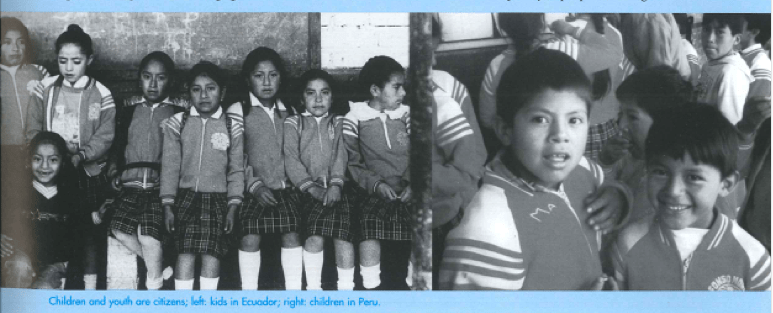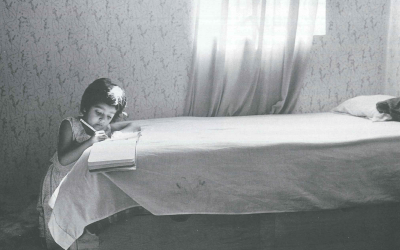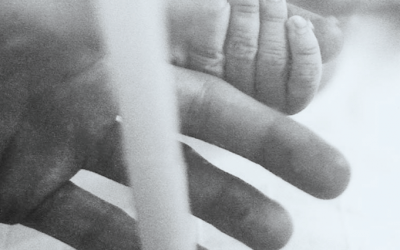Children and Democracy

Children and youth are citizens. It’s important to keep that fact in mind, and to understand that political participation in a democratic society involves much more than voting. In our work we emphasize the concept of a participatory democracy in which the public deliberation of citizens (including young non-voters) leads to legitimate lawmaking. We hold that child and adult citizens are both capable and deserving of assuming deliberative roles in the democratic functioning of their communities and nations.
So we were initially apprehensive on a recent visit to Costa Rica, one of the first since the establishment of the Task Force on Children and Democracy. We met with the Supreme Electoral Tribunal, a commission of three principal magistrates selected by the Supreme Court of Justice to monitor the national electoral process and democratic practices. In this meeting arranged by our close collaborator, Clotilde Fonseca, we presented our proposal to involve elementary students in deliberative programs to address the State of the Nation, an annual process in which adult citizens evaluate the state of their democracy. We were prepared for the Tribunal to express a high level of skepticism about bringing elementary students into the process of a national democratic audit.
When the Chief Magistrate looked at us sternly and said, “I really have a serious problem with this idea,: we knew our program was doomed. But he went on to say, “Why wait until elementary school, shouldn’t your program start with preschool children?”
His comments provided encouragement on our project in Costa Rica, an outgrowth of our decade of observations on children and democracy and the official establishment of the Task Force on Children and Democracy.
When Felton “Tony” Earls and I decided in the early 1990s to design a course on the “Urban Child in Global Perspective” at the Harvard School of Public Health, we came across the remarkable publications of UNICEF based on the UN Convention on the Rights of the Child (CRC), the most universally endorsed of all human rights treaties. From UNICEF we learned the importance of situating our teaching and our research in a CRC framework. Through UNICEF generosity, we visited government and community programs for socially- and economically-marginalized children (referred to by UNICEF as “children in especially difficult circumstances”).
We visited Brazil, Mexico, Barbados and Costa Rica, as well as tprograms in Eastern Europe and Eastern and Southern Africa. We met with children from the circus schools in poor neighborhoods of Rio and elementary school students from San José computer laboratories. We talked with families and other supportive adults.
The Task Force on Children and Democracy, a non-profit organization officially established last year in Massachusetts, grew out of the concerns we developed from our experiences.
We conceive of democracy as embedded in participation and deliberation, with a strong emphasis on the participatory rights in the CRC. These rights include a child’s right to expression, the child’s right to an opinion given due consideration by adults, access to appropriate information and to freedom of association; all in accordance with the age and maturity of the child. In our research projects, children are recognized as agents in society, not as immature objects to be excluded from deliberative and other political processes. The opportunity to be respected members of the public discourse provides young citizens with real life experiences that enable the development of language and reasoning skills, and especially skills in perspective taking and critical thinking that are fundamental to the actors in an equitable and sustainable democratic society.
The creation of the Task Force follows a decade long process of discovery and synthesis of theory relating to childhood, democracy and human rights. Our field experiences led to an awareness of the importance of obtaining local knowledge through the eyes and the words of children. Our theory and research is now based on a rights and ecological perspective which is formalized in the mission and goals of the Task Force. As an extra-academic organization, we believe this structure allows us the freedom to set ethical and multidisciplinary standards that exceed those of the academy. The Task Force provides a platform from which to explore new situations and establish true collaborations with children in the context of both adversity and advantage.
The Task Force aims to foster global cooperation by advancing programs and research to promote child development and well-being. We seek to collaborate with local academic and community organizations to address the ecological factors such as discrimination, disparity or inclusiveness and equality that limits (or enhances) the capacity of children and youth to participate and influence the democratic process in their societies.
The Task Force on Children and Democracy promotes the engagement of children and youth in identifying the conditions in their communities that are important to them and to their peers, families and neighbors. This is the first step in encouraging and supporting their genuine involvement in analyses of the conditions affecting their well-being, security, social support and resource provisions.
Yet one could question how political authorities in Latin American countries would judge programs based on the CRC and the concept of a participatory democracy that include children and youth.
In our efforts (which we still timidly restrict to elementary school children), we find strength in the appreciation (and admonition) of the Tribunal in San José. We are convinced that the ethical, political and educational principles upon which the Task Force (and Fonseca’s Omar Dengo Foundation) is based will enable and facilitate children in Costa Rica to address the contemporary conditions of their democratic society.
Success in Costa Rica should be achieved in such a way that it can impact children in adjoining nations. Although these nations do not have the strong history of democratic traditions as does Costa Rica, the benefits of expanding this effort is twofold. It assists in strengthening democracy through education and schooling, and it adds the voice of child citizens as an important dimension to the regional analysis of sustainable human development that the State of the Nation project is already pursuing through genuine collaboration with adult citizens.
In forming the Task Force to join ideas of children and democracy, it is important to know something about all our professional training and research (and service) experience to appreciate the collaboration we are pursuing. My early training in psychology and neurobiology was directed towards understanding the social development of non-human primates and how early experience (or early brain damage) affected the maturation of the central nervous system and related sensory and learning capacities. The recognition that my two decades of neurobehavioral research were not addressing the contemporary conditions that threatened the development and well-being of children, led to my spending a year at Harvard?s Kennedy School of Government (KSG) to study the ethics and politics of international development. Clotilde Fonseca and I were classmates in the KSG class of 1992 and were reunited in San Jose at a UNICEF meeting in 1996. Together with Felton Earls (and Clotilde’s husband, Francisco Antonio Pacheco, former Minister of Education under President Oscar Arias) we have exchanged many visits and big ideas in the process of bringing together child rights, citizenship, democratic education and technology.
Earls’ experience also complemented mine. In preparing for this article, Earls observed, “As a child psychiatrist and epidemiologist, I’ve taught and practiced in an academic/clinical setting as well as conducting population-based studies of child mental health. Having worked on issues of child mental health in many parts of the world over a long career, awareness of children as citizens came relatively late and suddenly. I find myself scrambling to correct a deficit derived from restrictions in my training and previous collaborations.
“The Task Force on Children and Democracy has provided a place to work collaboratively to create an ethical and scientific framework that integrates human ecology, social justice, and child development. The Omar Dengo Foundation/Task Force collaboration represents the clearest articulation of our mission and is described below by Clotilde Fonseca.”
From a Costa Rican perspective, Fonseca added, ” Thus, access to both learning and technology becomes a fundamental precondition to equitable development and a sustainable democracy.
The Omar Dengo Foundation (FOD), a private, non-profit organization started in 1987, has worked closely with Ministry of Public Education on a large-scale program to introduce computer technology into rural and low-income urban school throughout Costa Rica, that today reaches one out of every two students in national public schools.
This collaboration seeks to create computer-based environments fostering creativity, cognitive development and self-efficacy and not simply providing for technology fluency. Children working in teams create their own products instead of being passive users of commercial software.
FOD’s research shows us that students have been empowered by the teamwork and exposure to technology independently of their socio-economic backgrounds. Unless technology is incorporated into educational initiatives, the socioeconomic and digital divides will continue to widen, thereby jeopardizing the human rights and socioeconomic stability of our democratic society.

Recently we began a collaboration with the State of the Nation Project on Sustainable Human Development, along with the Task Force on Children and Democracy, to bridge the gap between social science research and civic action. Since 1994, the State of the Nation Project has involved civil society actors to assess human development indices through suggesting what indices were most important, monitoring how the indices were measured, and in evaluating the quality of available information. When citizens are involved in research on their society, seen as politically legitimate, allow the outcomes to be accepted as trustworthy by adult society. This Program has contributed significantly to the identification of central elements for the country’s national and community agenda.
In 1998, the Omar Dengo Foundation and State of the Nation launched a joint project that allowed children in the less developed Guanacaste region to think and exchange views on “the Costa Rica we have and the Costa Rica we want to build.” This initiative allowed elementary school students and teachers participating in the National Educational Informatics Program to address community problems, look for solutions through community research, and formulate of computer-based projects through which they presented their views, expressed their concerns and proposed solutions. These in turn were presented during the VII Children’s Educational Informatics Conference that ODF and the Ministry of Public Education held in 1999. This successful initiative revealed how young kids can be involved in identifying community problems, analyzing and communicating them through the use of technology when they work within the context of constructionist learning environments, such as the one developed by Seymour Papert at MIT.
Working with the Children’s Task Force and the State of the Nation has allowed us to bridge the gap between school-based learning and civic action. Furthermore, it has made it possible for us to address issues while bridging the digital divide in a framework based on the creation of Internet-based, innovative learning environments focused on capacity building and meaningful appropriation. Our joint project with the Children’s Task Force and State of the Nation focuses on perspective taking, deliberation, consensus building and active participation of children and use as citizens with a responsibility to find solutions and express their views. Furthermore the project focuses on socially and personally meaningful appropriation of technology.
In this sense, the multiple expertise and knowledge that we all bring to this project, will allow us to make significant contributions not only to Costa Rican children and society, but to the region and beyond. At a time when democratic systems are being questioned in many countries and regions around the world, we are convinced that this joint initiative has much to offer.
Fall 2002
Maya Carlson, an Associate Professor of Neuroscience in Psychiatry at Harvard Medical School, is trained in psychology and neurobiology. In the last decade, she has redirected her career from laboratory studies on brain and behavior development in nonhuman primates and field studies on stress regulation in children to the integration of ethics with the biological and social sciences in the formulation of child social policy.
Felton Earls, a child psychiatrist and epidemiologist, is a professor of Social Medicine at the Harvard School of Medicine and a professor of Human Behavior and development in the Harvard Faculty of Public Health and Child Psychiatry.
Clotilde Fonseca is Executive Director of the Omar Dengo Foundation (ODF). A professor at the University of Costa Rica, where she still teaches poetry and aesthetics, she moved from an passionate interest in literature into work in social development, educational and technology policy Including consultant work for the United Nations Development Program (UNDP), the United States Agency for International Development (USAID), and the Central American Commission for Environment and Development. A year (1992) at the Kennedy School of Government at Harvard was a good key to making the transition.
Related Articles
Editor’s Letter: Democracy
Ellen Schneider’s description of Sandinista leader Daniel Ortega in her provocative article on Nicaraguan democracy sent me scurrying to my oversized scrapbooks of newspaper articles. I wanted to show her that rather than being perceived as a caudillo
Battro Named to Pontifical Academy
Antonio M. Battro M.D., Ph.D. has been named to The Pontifical Academy of Sciences, the oldest science academy in the world, established by Galileo 400 years ago. Battro, Robert F. Kennedy…
Entre los panales y el poder
Cuando Jacqueline van Rysselberghe fue informada en Noviembre último que ella debería dejar su puesto como alcaldesa de Concepción, una de las ciudades mas grandes e…




